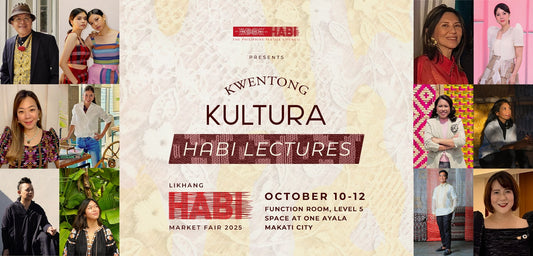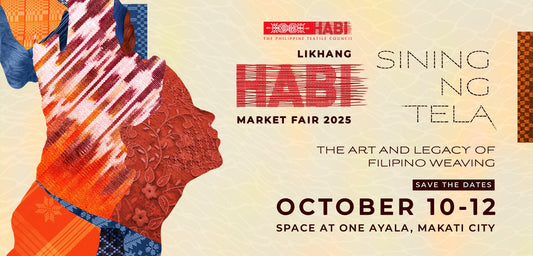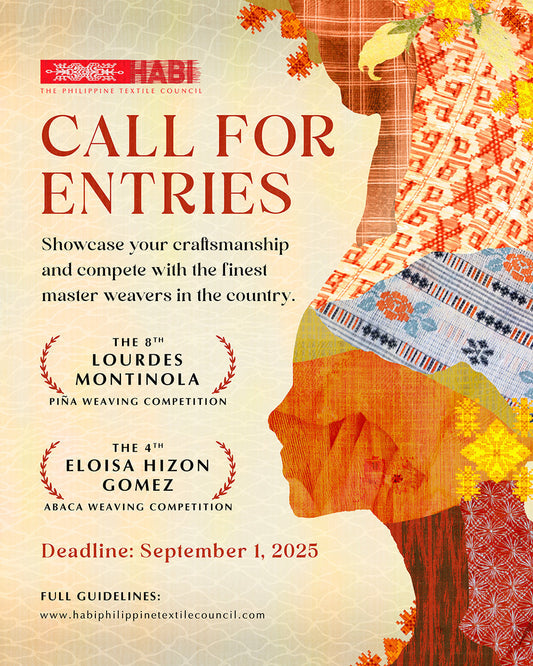“The modern world is realizing the beauty of handwoven items, the beauty of natural fabric, and the beauty of tradition,” says Maribel Ongpin, chairperson of HABI; The Philippine Textile Council, over a Facebook Live press conference. “For us Filipinos, it’s part of our identity. We should understand it. We should enjoy it.”
Since 2009, the annual Likhang HABI Market Fair has been an exciting venue for this, offering a social experience of discovering handwoven crafts, watching live demonstrations and cultural showcases, and meeting like-minded individuals at the Glorietta Activity Center.
This year, HABI still goes on—online, that is, at our website. From October 21 to 27, 2020, the online site will offer e-commerce for sustainable and ethical fashion and lifestyle products from over thirty merchants representing various weaving communities from Luzon, Visayas, and Mindanao. A series of interesting webinars will also be conducted and made available on the site.

Pineapple-silk barong Tagalog dyed in mahogany extract by Carlo Reporen Eliserio, son of HABI Piña Weaving Contest winner Raquel Eliserio.
The Cotton Project
There are 450-plus weaving groups in the Philippines, with a total of 5,000 weavers. Of these, 45 percent are from Luzon, 30 percent are from the Visayas, and the remaining 25 percent are from Mindanao, with estimated revenues of P3,000 per weaver a month, according to Mike Claparols, one of the fair committee members.
Eighty percent of weavers use synthetic materials like polyester, made in China, ultimately lowering the quality of our textiles, while only twenty percent use cotton, piña, and abaca.
HABI continues its long-term commitment and advocacy of reviving the use of pure Philippine cotton. To encourage more weavers to use pure cotton, HABI has partnered with the Philippine Fiber Industry Development Authority to give our local farmers cotton seeds and threads for its Cotton Adoption Project.
HABI provides cotton and logistics to selected weavers. Rambie Lim, of the HABI Cotton Project, shares, “We worked with weavers who could already use the thicker threads. We find ways to translate their weaving techniques into cotton.” These weavers are currently from Dumaguete, Sulu, Palawan, and Aklan.
“We are protecting weavers as protectors of our intangible cultural heritage,” she says.




